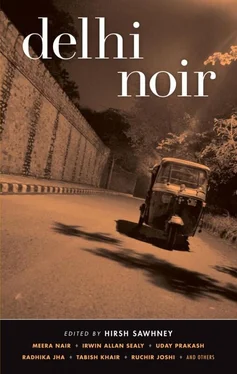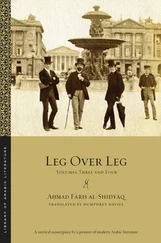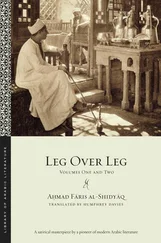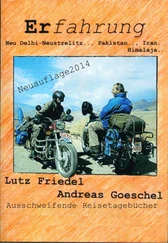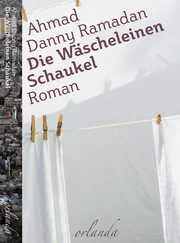Omair Ahmad - Delhi Noir
Здесь есть возможность читать онлайн «Omair Ahmad - Delhi Noir» весь текст электронной книги совершенно бесплатно (целиком полную версию без сокращений). В некоторых случаях можно слушать аудио, скачать через торрент в формате fb2 и присутствует краткое содержание. Город: New York, Год выпуска: 2009, ISBN: 2009, Издательство: Akashic Books, Жанр: Детектив, на английском языке. Описание произведения, (предисловие) а так же отзывы посетителей доступны на портале библиотеки ЛибКат.
- Название:Delhi Noir
- Автор:
- Издательство:Akashic Books
- Жанр:
- Год:2009
- Город:New York
- ISBN:978-1-933354-78-1
- Рейтинг книги:3 / 5. Голосов: 1
-
Избранное:Добавить в избранное
- Отзывы:
-
Ваша оценка:
- 60
- 1
- 2
- 3
- 4
- 5
Delhi Noir: краткое содержание, описание и аннотация
Предлагаем к чтению аннотацию, описание, краткое содержание или предисловие (зависит от того, что написал сам автор книги «Delhi Noir»). Если вы не нашли необходимую информацию о книге — напишите в комментариях, мы постараемся отыскать её.
Brand-new stories by
Delhi Noir — читать онлайн бесплатно полную книгу (весь текст) целиком
Ниже представлен текст книги, разбитый по страницам. Система сохранения места последней прочитанной страницы, позволяет с удобством читать онлайн бесплатно книгу «Delhi Noir», без необходимости каждый раз заново искать на чём Вы остановились. Поставьте закладку, и сможете в любой момент перейти на страницу, на которой закончили чтение.
Интервал:
Закладка:
Delhi Noir
In memory of Shiv Lal Sawhney
1933–2009
Introduction
Everyday anguish

Delhi, a city that’s been reborn in various locations and forms throughout its thousands of years of history, was in the midst of yet another colossal transition when I arrived here four years ago. This latest metamorphosis was being fueled by legislation that opened up India to private and foreign investors. International brands like the Wall Street Journal and Chanel were setting up shop. The city’s cruddy public transportation system was being revolutionized by an ultramodern metro. My mother’s massive Punjabi family — Partition refugees who’d happily lived in a one-bedroom Connaught Place flat during the 1950s — were driving Hondas and Hyundais and comparing plasma television prices.
For the first time in decades, members of the educated elite were experiencing a gleeful surge of nationalism, and they wanted to savor it. They bragged about the new malls and cinemas going up in Gurgaon, a quasi-American suburb in which civic planning plays second fiddle to corporate whims. They reveled in the number of billionaires who called their city home, as well as the rising values of the houses their parents had built. But things weren’t — and aren’t — as good as everyone wanted to believe.
Every morning, papers abound with alarming stories: accounts of the unmitigated corruption and contract killing that make this city of more than fifteen million tick; indications of increasing divisions between rich and poor that lead servants to murder masters and foment Maoist movements in the country’s hinterland; synopses of so many rapes and sexual assaults that readers become numb to them. Yet the everyday depravity and anguish of Delhi life remains confined to news copy. Despite notable exceptions like Namita Gokhale and Arvind Adiga, authors of literature — particularly those who write in English — usually choose to ignore the capital’s stains.
Other Indian metropolises have had writers who’ve chronicled the perils of urban existence, and some of these individuals have done so by employing the devices of crime and detective fiction. Mumbai, India’s film capital, lays claim over Vikram Chandra, who published the mammoth noir tomb Sacred Games, and Altaf Tyrewala, who wrote an impressive slim book called No God in Sight. Looking futher back, the iconic Urdu author Saadat Hasan Manto called Bombay home, even though his macabre stories were set in different locations. The legendary Bengali filmmaker Satyajit Ray also wrote detective stories, as did Bengali Sharadindu Bandyopadhyay, whose enigmatic Sherlock Holmesesque Byomkesh Bakshi mysteries are set in Calcutta.
What then explains the lack of noir literature — and fiction in general — set in Delhi? The answer may be simple. Good crime fiction, however seductive and pleasurable, forces readers to reckon with the inequity and cruelty inherent to modern societies. It’s only natural that Delhi’s book-buying-and-publishing citizens would avoid such writing. Any insight into their hometown’s ugly entrails would threaten their guilt-free gilded existence and the bubble of nationalistic euphoria in which their lives are contained. They are too dependent on the power structures and social systems intrinsic to the city — embassies, government offices, and corporations; rural poverty and illegal immigration — to risk looking critically at these things.
Thankfully, there are writers who are willing to see Delhi as it is, and this anthology contains stories by fourteen of them. Delhi Noir ’s contributors are diverse: They are Christians, Hindus, Muslims, Sikhs; Punjabis, Biharis, Bengalis, and Keralites; men and women; gay and straight. Many reside in the capital, but others have addresses in Uttarakhand or the U.S. Some have published critically acclaimed books, and a few are still working on their first manuscripts. What they have in common is the inclination to write delectable literature that doesn’t shy away from the city’s uncomfortable underside. Their fiction isn’t politically correct and refuses to pander to popular perceptions about India or its capital, perceptions that conform with the agendas of governments, glossy magazines, and multinational corporations.
I’ve borrowed three popular slogans that are tattooed across the city to divide these fourteen stories into sections. The title of the first section — With You, for You, Always — is the well-known motto of the Delhi Police. These stories range from humorous to perverted, but all scrutinize the presence (or lack thereof) of the cops who man the front lines of the capital’s law-and-order system. Newcomer Omair Ahmad’s detective story forces readers to come to terms with the fact that the Congress-led government was complicit with the massacre of innocent Sikhs in the wake of Prime Minister Indira Gandhi’s assassination. Irwin Allan Sealy’s tale about a vigilante autorickshaw driver who avenges sexual assault on the Ridge is defined by the wry, rhythmic prose that garnered him a place on the Booker Prize shortlist in 1998. Author and civil servant Nalinaksha Bhattacharya invites us into the life of a police officer who extorts sex from the wives of low-level central government employees. His is a sardonic, hard-hitting parody of the Indian television serials that are voraciously consumed by all rungs of society — those who live in brothels, mountain villages, and the extravagant farmhouses of Delhi.
The second section’s title — Youngistan (land of the youth) — is a spoof of a Pepsi advertising campaign that attempts to appeal to India’s 200,000,000 young people aged between fifteen and twenty-four. Unlike the folks in the ad, however, lives in these stories don’t get easier by drinking a cola or encountering megastar Shah Rukh Khan. In Delhi-raised New York resident Mohan Sikka’s “Railway Aunty, an orphaned college student stumbles into a prostitution ring that lurks beneath Paharganj’s veneer of civil servants and backpackers. Bihar-born Delhi resident Siddharth Chowdhury bewitches readers with his raunchy, violent musing on life in a university dormitory. His prose alters the DNA of the English language, and is the literary version of good jazz.
Walled City, World City, the slogan heading the final section, stems from a Times of India campaign that encourages Delhi citizens to forget the city’s painful past, its riots and pogroms. This bullish advertisement makes a simple comparison between Delhi’s history — Mughal rule, colonialism — and its current aspirations — superpowerdom, cosmopolitanism. But Tabish Khair, author, academic, and a former Times of India reporter, reminds us that border crossings aren’t just comfortable flights on 747s. They also define the lives of countless young farmers and laborers who’ve abandoned rural India for the capital to cook, clean, and shine shoes. Veteran Uday Prakash scrutinizes the promise of social mobility in the “new India” and exhibits the vitality and universality of Hindi-language writing. Closing out this volume, the always provocative playwright, author, and illustrator Manjula Padmanabhan trans-ports readers to a nightmarish futuristic vision of Delhi as a “world city.”
These fourteen stories span the length and breadth of Delhi, from familiar spots like Jantar Mantar and Lodhi Gardens to more off-the-beaten-path neighborhoods like Gyan Kunj and Rohini. Together they give you an alternative map to the city, one that doesn’t shy away from its strident flaws and yet also sheds light on beauty in overlooked corners and conversations.
Читать дальшеИнтервал:
Закладка:
Похожие книги на «Delhi Noir»
Представляем Вашему вниманию похожие книги на «Delhi Noir» списком для выбора. Мы отобрали схожую по названию и смыслу литературу в надежде предоставить читателям больше вариантов отыскать новые, интересные, ещё непрочитанные произведения.
Обсуждение, отзывы о книге «Delhi Noir» и просто собственные мнения читателей. Оставьте ваши комментарии, напишите, что Вы думаете о произведении, его смысле или главных героях. Укажите что конкретно понравилось, а что нет, и почему Вы так считаете.
